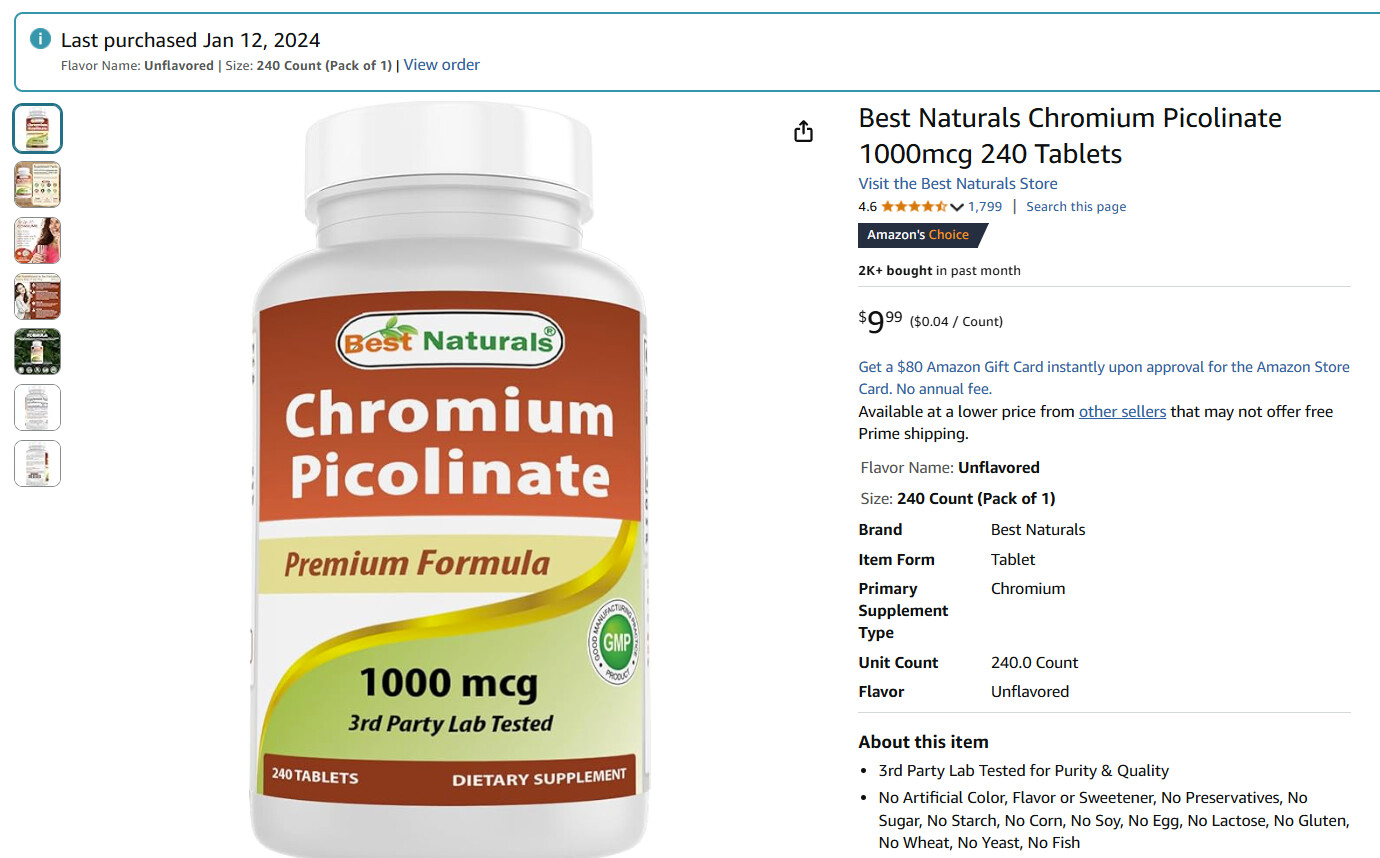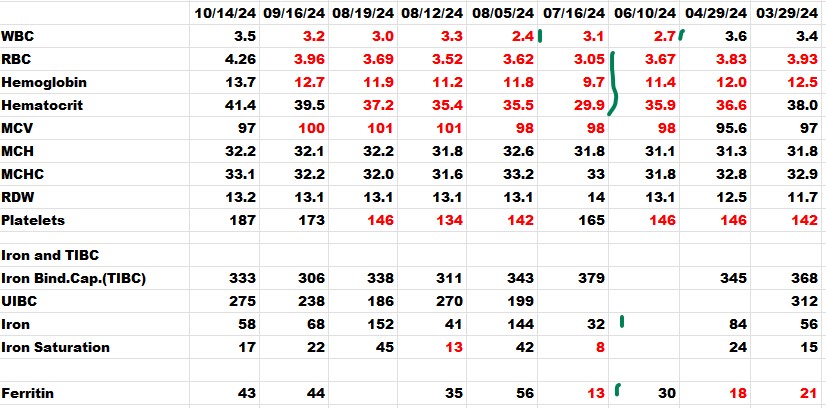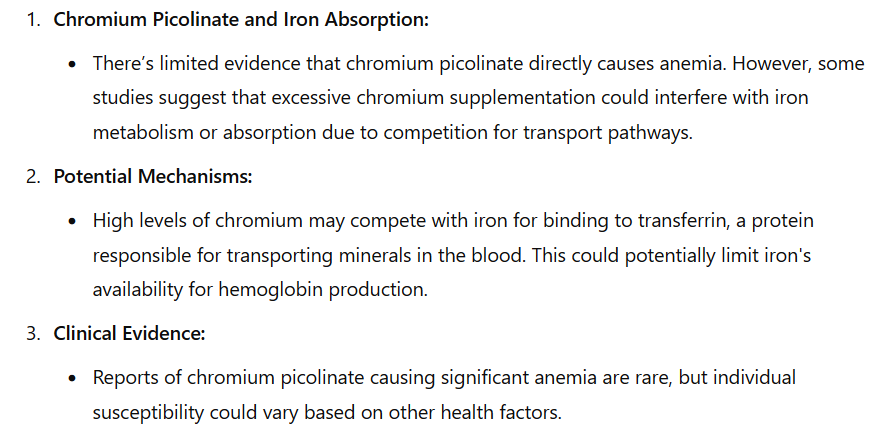For those of you that have experienced a worsening of glucose tolerance when taking rapamycin, has any of you tried taking very high doses of chromium in an attempt to minimize the negative effect on glucose tolerance?
Rapamycin supplementation in mice has been found to reduce GLUT-4 expression in their muscles. Rapamycin impairs HPD-induced beneficial effects on glucose homeostasis - PubMed See these two quotes from the full text:
“We also found that GLUT4 expression in muscle was significantly (P < 0.05) reduced in HFD-fed mice after 35 days of rapamycin treatment (Figure 6C).”
“The concentrations of chromium in the blood and bone of rapamycin-treated lean mice fed a HPD were approximately 34 and 33% lower (P < 0.05), respectively, in comparison with vehicle-treated animals, while the chromium concentrations in liver and fat pads exhibited the reverse trend, with mean increases of 2.1- and 1.8-fold respectively. However, a similar concentration of chromium was found in the muscle and kidney in the HPD control and HPD rapamycin groups. Our results thus demonstrated marked changes in chromium metabolism with a net movement of chromium in hyperglycaemic mice.”
Note that GLUT-4 is a transporter that transports glucose into muscles and other tissues. Lower expression of GLUT-4 would tend to worsen glucose tolerance. Interestingly in the above study, rapamycin influenced the distribution of chromium in the body of the mice, leading to reductions in the levels of chromium in the blood and bone while increasing it in their livers. Note that chromium is well known to be important for glucose uptake into tissues and it can improve glucose tolerance by increasing GLUT-4 translocation in cells. Chromium activates glucose transporter 4 trafficking and enhances insulin-stimulated glucose transport in 3T3-L1 adipocytes via a cholesterol-dependent mechanism - PubMed
This makes me wonder if high dose chromium might offset some of the negative effects of rapamycin on glucose tolerance, since rapamycin decreases GLUT-4 in some tissues while chromium increases it. While I don’t think it’s likely, I certainly think it would be an interesting experiment for people that notice worsening of glucose tolerance when taking rapamycin. Note that you might need very high doses to see effects. Studies have shown that people that are insulin resistant may need up to 1000 µcg of chromium daily to improve their blood glucose. Phenotype of subjects with type 2 diabetes mellitus may determine clinical response to chromium supplementation - PubMed
If anyone does this kind of experiment, please report back on your results, and note that it might take several weeks for the chromium to work.


